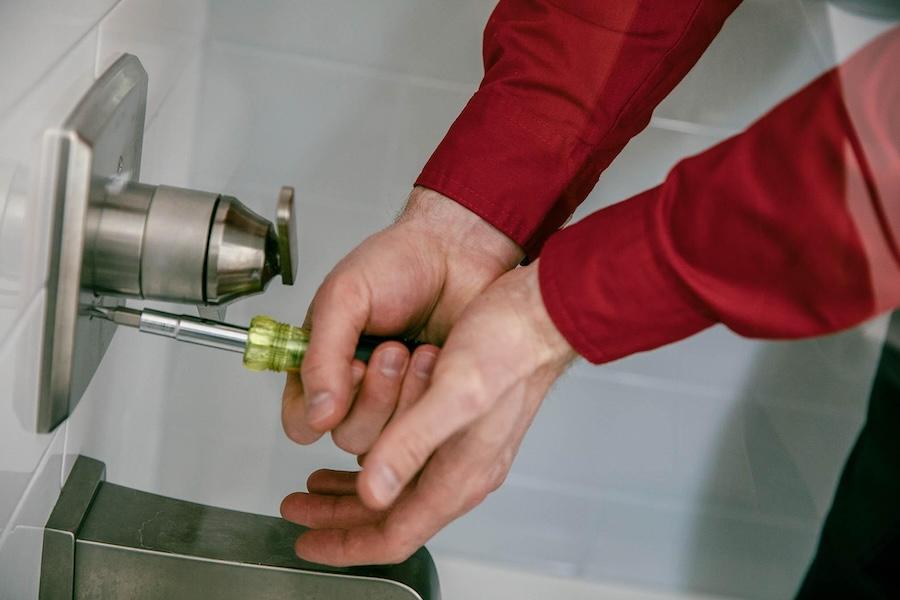Imagine wrapping up a long day, stepping into your bathroom to relax, and running into a steady drip, drip, drip coming from the shower faucet. At first, it’s just annoying. But then the panic sets in. How much water is this wasting? Is it going to cause bigger problems? Should you grab your toolbox or call a plumber right away?

Don’t worry. You’re not alone. Shower faucet leaks are one of the most common plumbing issues, and they happen to nearly everyone. While they can be frustrating, they’re usually fixable. The key is knowing why they happen, when you can handle them yourself, and when it’s best to call for professional plumbing repair service.
In this brief article brought to you by Mr. Rooter Plumbing, we share our two cents on an issue we've been fixing for decades. With over 50 years of industry experience and heritage, Mr. Rooter is proud to be a trusted provider in all things plumbing. Homeowners, businesses, property managers, and local governments know Mr. Rooter is in it for the long-run.
Let's say it like it is: Your shower faucet gets used more than just about any other fixture in your home. Over time, the wear and tear is inevitable. Here are just some of the things that can eventually go wrong and break down:
It may be tempting to ignore that drip, but a leaking shower faucet can cause more than just irritation. Even a slow drip can waste dozens of gallons a week. That’s money literally going down the drain. Over time, leaks can even stain tiles, encourage mold growth, or damage walls and ceilings.
Sometimes a leak is just a symptom of a larger issue deeper in your plumbing system. This is where a professional leak detection can help uncover what’s really going on. The trained plumbers at Mr. Rooter, for instance, use both diagnostic devices and years of hands-on experience to get to the root of the problem.
If you’re handy and the problem seems minor, then you might be able to handle some faucet repair yourself. For example, replacing a washer or O-ring, cleaning out mineral buildup, and tightening handles and screws are relatively straightforward and may restore a good seal.
If you go the DIY route, make sure to turn off the water supply first, and don’t force parts that don’t want to move - this can cause more damage. Do your due diligence and recognize what you're getting into.
DIY repairs are great for minor issues, or if you want a temporary fix until you have the time and/or budget, but it helps to know when calling a plumber is the smart idea. You'll want expert assistance if:
In short, if the work involves working with the water line or anything beyond the faucet fixture itself, then it is always advisable to bring in a trained plumber. The uniformed pros at Mr. Rooter Plumbing are always ready to help with upfront pricing, quality service, and emergency scheduling.
If you notice water pooling on your floor, you may feel frustrated… but you’re also fortunate. Visible leaks announce themselves early. Hidden leaks do not. In fact, many of the…
Gas lines are the conduits that carry natural gas to your appliances and equipment, and these pipes deserve praise and demand attention. A damaged or leaking gas line is not…
Faucets have come a long way from the simple knobs and spouts many of us grew up with. Today’s kitchens and bathrooms often feature modern designs that add convenience, style,…
Let’s be real: the difference between a leak and a full pipe break is just a matter of time if you don’t fix the leak. These issues don’t heal like…